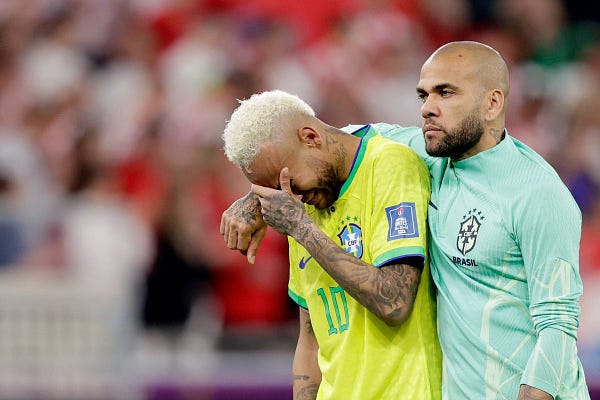Corny holiday movies remind me of my Dad. He couldn't stand them. He'd roll his eyes and snort at anything sentimental. Or, worse, he’d get awkward and weird and jokey during heartrending scenes, both onscreen and off. It wasn't so much manly stoicism as it was avoidance. He'd seen more loss than most when he was young, and I think he survived by skimming past hard things.
Dad was infinitely baffled by my teenage dramas. I’d get all upset over a lost textbook or wounded feelings, and he’d raise his eyebrows and say in that unfailingly comic German accent: "Vell zere is no need to become hysterical." All you could do was laugh. Other times he'd randomly careen out of the conversation and start talking to the cat as if she had interrupted us with a question. Turning to her, he’d say sternly: "No, ve ahr not having dinner now.”
But not long after my Mom died, dementia settled gently around Dad eroding that protective shell of humor. One year we watched "Sleepless In Seattle," the sappiest of all sappy comedies. I was sure Dad would ruin it by mocking everything.
About half an hour in, my daughter Annika, who was about 10, climbed onto Dad's chair. She put her head on his shoulder, one little arm looped around his neck. And I thought, how cute. When I looked again, I realized she was wiping tears from his face. I couldn't understand what was upsetting Dad. He didn't even cry as we sat with Mom in her waning hours; he just stroked her hand, turning to me every few minutes to say what a good wife she was. But, of course, “Sleepless” is about a widower grieving his wife. And my kid, who has the emotional intelligence of a 90-year-old shaman, had noticed his distress when I hadn't.
That was one of many startling and lovely moments with Dad in his last years when some internal door had opened for him. After a lifetime of staying above or maybe beyond it all, he wept over a corny movie with us. Dad of yore would have been horrified by that and maybe also by this column.
Nonetheless, I now consume sentimental holiday movies that I wouldn’t normally tolerate. (I’m usually in the “serial killers with a big heart” section of Netflix.) And sure, it’s easy to see the flaws of "Love Actually" and its peers from the early 2000s. Yet they are our emotional outlet, a seasonal excuse to weep for whatever or whomever you long for at the gloaming of the year.
And besides, is there anything more cathartic than seeing the great Kate Winslet become thoroughly undone by heartache in 2006’s “The Holiday”? Keening and sobbing, she literally howls, moving through room after room, crying at the sink, crying while curled in a ball on a chair, crying at her desk.
Watching it this year, I thought, if only men like my Dad didn't have to wait till their eighties for an excuse to indulge in such things.
But then I took in the last few games of World Cup soccer, which, for the first time, was being played right in the middle of the winter holidays instead of summer. And I remembered that unlike baseball, or American football, there is crying in soccer. So much crying. Also, so much running into the arms of a beloved. It rivals the airport-reunion montage from "Love Actually."
You might even say World Cup soccer is the romantic holiday movie of sports. (Stay with me on this, oh devout soccer fans.) Just think about it: These insanely fit athletes are constantly unabashedly showing their feelings, throwing themselves face-down on the grass, weeping and rending their garments after a loss, a triumph, or any injury psychic, physical or imagined.
Slate.com has even cataloged different types of affection at the 2022 World Cup, like the forehead-to-forehead touch and the on-the-ground embrace. P.D.A. on the pitch is common. Yet, it almost feels transgressive to watch such intimacy, all these international heroes, shiny with tears, faces buried in each other's necks, celebrating or consoling.





And there’s nothing better than unexpected love stories between foes. After Iran lost to the U.S., American players embraced the opposition, literally. One Iranian player sobbed in the arms of an American for so long, I thought we should turn off our TV out of respect. The two nations have been lethal enemies for longer than anyone on these teams has been alive. But the Americans knew the Iranians would now be returning to a nation where millions of their fellow citizens were risking their lives protesting a brutal, vindictive regime.

And the drama continues off the pitch. Brazil's star player, Neymar posted a his personal message to teammates who missed critical penalty kicks.
"How are you? I am here to tell you I am your fan. One penalty won't change how I feel about you. I am always with you and you know that, I love you."
I love you too, emotional men of soccer. And clearly, I need to find a team to root for between World Cups. Watching soccer has to be healthier than following American politics.
But this weekend, I'll queue up the least gooey Christmas movie I know: "Home For the Holidays," with Holly Hunter and Robert Downey Jr. It puts the fun in dysfunctional. Just like Dad.
I’ll leave you with a clip from “Love Actually,” the airport scene. If you don’t tear up, you might be related to me. And, I wish everyone light and love and many happy reunions in the new year, Susanna








Feelings of grief may or may not be shown by the affected person. Such feelings may be present even if there is no outward display. This applies to both males and females.
Kwa Tjong-Liem, widower
Wonderful post, thank you.
There's an old joke: What's the difference between a dog and a human being? Dogs know how to be dogs.
Unlike dogs, guys have to figure out how they feel and then whether it's safe to express it. I'm glad to see that tears of joy and sorrow are becoming an acceptable part of our emotional vocabulary.